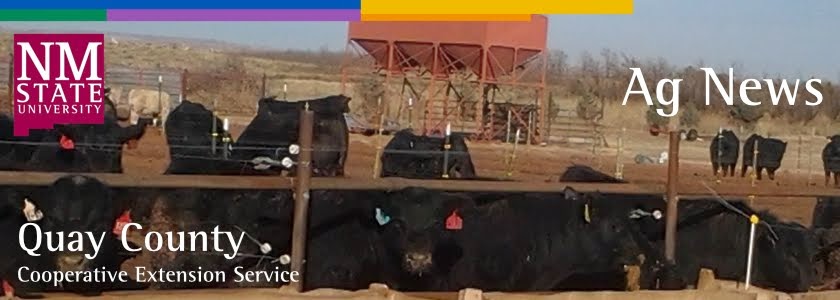FOR RELEASE:
March 18, 2016
MEDIA CONTACT:
Katie Goetz
New Mexico Department of
Agriculture
575-646-2804 office
Livestock Board
quarantines facility following case of equine disease
Equine piroplasmosis
affects only horses; unrelated to recent EHV-1 outbreak
(SUNLAND PARK, N.M.) – A private racehorse-training facility in southern New Mexico
is under quarantine after a single horse there was confirmed to have a
parasitic disease.
The New Mexico Livestock Board imposed the quarantine -- no horses in,
no horses out -- at Jovi Training Stables late Friday after one horse
there was confirmed to have equine piroplasmosis (EP). EP is a bloodborne
disease transmitted by ticks, or mechanically via improperly sanitized syringes
and the like. Mild forms of EP can appear as weakness and lack of
appetite. More severe signs include fever, anemia, weight loss, swelling
of the limbs, and labored breathing. Death may occur in some cases.
Humans cannot get equine piroplasmosis. The
disease is also unrelated to equine herpesvirus (EHV-1), which recently
affected Jovi Training Facilities and other tracks and training facilities in
the area.
“It is important to keep in mind that equine
piroplasmosis is nowhere near as transmissible as EHV-1,” said Bill Bunce, the
executive director of the New Mexico Livestock Board. “Compared to the
EHV-1 outbreak, we are looking at a vastly different scenario here."
Because tick-spread diseases are very uncommon in
the dry climate of southern New Mexico, Bunce said "the chances are very
good that we are looking at an isolated case."
"To ensure the disease is not widespread and
to prevent further risk to the racing industry, we will be completing all
regulatory testing and surveillance steps," Bunce added.
"That's in addition to the quarantine that prevents horses from entering
or leaving Jovi -- meaning that during the quarantine period, no horses from
Jovi will be admitted at Sunland Park Racetrack.”
EP is not considered endemic in the United
States, but surveillance of the disease has increased in tandem with the
increasingly international nature of horseracing. As such, the New Mexico
Racing Commission requires that quarterhorses at sanctioned racetracks in New
Mexico be tested for EP once every two years.
Racehorse owners who have had horses at Jovi
recently are advised to contact their veterinarian for medical questions and to
contact the Livestock Board for quarantine questions.
###
Confidentiality Notice: New Mexico has a very broad public records law. Most
written communications to or from state employees are public records. Your
e-mail communications may therefore be subject to public disclosure. This
e-mail, including all attachments is for the sole use of the intended
recipients. Any unauthorized review, use, disclosure or distribution is
prohibited unless specifically provided under the New Mexico Inspection of
Public Records Act.
Confidentiality Notice: New Mexico has a very broad public records law. Most
written communications to or from state employees are public records. Your
e-mail communications may therefore be subject to public disclosure. This
e-mail, including all attachments is for the sole use of the intended
recipients. Any unauthorized review, use, disclosure or distribution is
prohibited unless specifically provided under the New Mexico Inspection of Public
Records Act.
